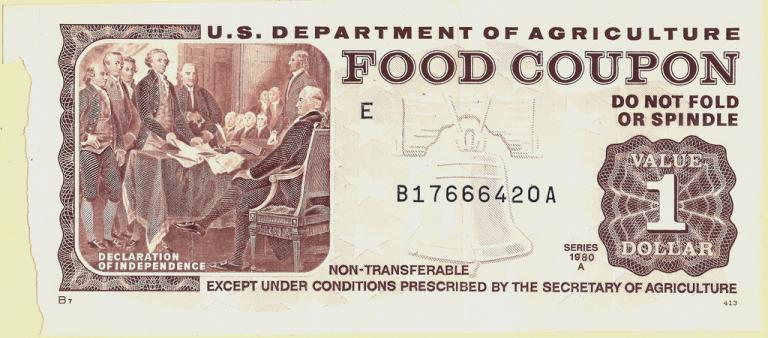So this is a book that I’d been trying to find at the library for a while, and I’m not sure if it was truly checked out until now, or if was just that my “looking” was in the memoirs section, when it was actually located in the 300s nonfiction. (My library switched to a “marketplace” concept several years ago — basically an oversized new books area in which the books are sorted into general categories rather than strictly by call number, to encourage more browsing.)
The book is quickly described: Vance, grandson of migrants from the hillbilly world of Kentucky to Middletown, Ohio. Mamaw and Papaw acquired the trappings of middle-class-ness — a 4-bedroom house, new cars — but Papaw was an alcoholic for much of this children’s childhoods, and family life was full of fighting, with hair-trigger tempers ready to flare to defend family or personal honor. The author’s mother cycled through marriages and live-in relationships, and multiple rounds of addiction and rehab, and he bounced between her home, his grandmother’s, and brief stays with his father and a favorite aunt, and through it all, his experience of family life was, again, full of fighting and just plain meanness. Although his life was full of chaos, he loved, and was loved by, his mother, grandmother, sister, and all the various aunts and uncles in the family. Mamaw in particular provided a stable home life and insisted, in his later high school years, that he apply himself at school. Eventually, he gained admission to college but, bewildered by the process, enlisted in the Marines instead, and, after 4 years there, used GI bill benefits, other financial aid, and his own earnings to attend college, pushing himself through at breakneck speed, and then, with a generous aid package, attended Yale Law School.
Now, it’s particularly interesting to have read this in the context of some of my recent blog posts on identity and culture, and whether “white America” or “America” (no modifier) has a culture that can in any way be compared to, say, the Bavarians getting decked out in their dirndls and lederhosen to celebrate Oktoberfest (fun fact: the traditional dress, or Trachten, was on its way to being consigned to a few heritage societies until it was intentionally and deliberately revived — and it probably helped that a dirndl could be “sexed up” for young Wies’n-goers). Because Vance has a clear “ethnic” identity, and it’s not “white” and it’s not Scots-Irish, it’s Hillbilly-American. (OK, he just says “hillbilly.”) In the same way as a wave of migration brought blacks from sharecropping in the South to cities in the North in the 60s, there was a wave of migration out of the hill country of Appalachia to the factory towns of Ohio and elsewhere after World War II, and he describes being very aware of being “of hillbilly ancestry,” so to speak, and knowing that his family, and other hillbilly transplants, were different, and that those differences, such as the quick-temperedness, left many of his peers flailing. In particular, he writes of having to learn, as an adult in his first serious relationship, with the woman who later became his wife, how to resolve differences in more productive ways than a “fight or flight” reaction, and he observes that, in his extended family, the ones who “made it” — and here he largely means in terms of personal and family stability more than financial success — were the ones who “married out” to people who were, well, “not mean” to each other.
What’s more, though Vance knows full well that the working-class face significant economic difficulties as plants close due to automation or globalization, he has witnessed enough destructive behavior to know that the actions of these people compound the situation. He watches young people fortunate enough to find jobs, good-paying jobs, unable or simply unwilling to keep those jobs, showing up late or not at all, taking multiple, over-long toilet breaks, simply failing to do the minimum level of work required. And he has watched drug addiction take its toll, not just in his own family, but in the community at large.
His experiences at Yale also teach him of the importance of social capital, something that he struggled to acquire. He describes a complete lack of understanding of basics like “wear a suit to an interview,” and relates a dinner-interview in which he calls his girlfriend from the bathroom to ask what he’s supposed to do with the bewilderingly-large number of pieces of silverware.
In the end, Vance does not offer any big answers, and is skeptical that there are any big answers out there to be found, just the hope that policy solutions and/or individual efforts might help kids at the margin, one at a time.
But have you seen the news reports about the 7 year old whose parents both OD’ed, and she told the bus driver that she couldn’t wake them up, when, in fact, they were dead? It’s hard to fathom this — and you can find the facebook pages for these two sorry excuses for parents, and see these innocent children’s pictures, at least as of earlier today. A 9 month old baby, left uncared-for, or in the care of her 5 year old and 7 year old siblings.
Famously, “Happy families are all alike; every unhappy family is unhappy in its own way.” Only just now in googling the quote did I learn that this is called the “Anna Karenina principle,” and is explained in Wikipedia thusly:
The Anna Karenina principle describes an endeavor in which a deficiency in any one of a number of factors dooms it to failure. Consequently, a successful endeavor (subject to this principle) is one where every possible deficiency has been avoided.
The name of the principle derives from Leo Tolstoy’s book Anna Karenina, which begins:
Happy families are all alike; every unhappy family is unhappy in its own way.
In other words: in order to be happy, a family must be successful on each and every one of a range of criteria e.g: sexual attraction, money issues, parenting, religion, in-laws. Failure on only one of these counts leads to unhappiness. Thus there are more ways for a family to be unhappy than happy.
Now, Vance writes of reading William Julius Wilson’s The Truly Disadvantaged, and feeling like it described his own childhood experiences, even though the book itself was actually about the “underclass” of Chicago, the black neighborhoods that were not just poor but disconnected from the norms of the working world. And his identification of “honor” as a crucial driving force fits in closely with the notion that in the ghetto (yeah, I know, you have to say things like “poor black urban neighborhoods” instead), people shoot one another because they’ve been “disrespected.” (Prior post here.)
But in reading Hillbilly Elegy, I wonder to what extent these various poor communities are “all the same” or whether “every poor community is poor in its own way.” Certainly it’s comforting to think that there are one-size-fits-all solutions: more school spending! free college! education vouchers! promote marriage! But Vance’s portrayal of the culture he grew up in seems so distinctively rooted in hillbilliness that I wonder whether this instinct of “all poor people are basically the same” is really correct.













